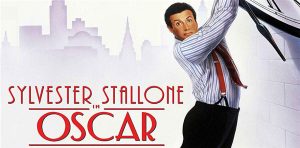
After reading my not-so-positive review of Baz Luhrmann’s “Elvis,” reader John Simmers emailed:
As a former radio guy, I greatly enjoy your comments about the business. Your career was more successful than mine, but I’m sure we share a few similar experiences.Regarding “Elvis.” I cannot understand why they make these biopics. I was a very early adopter of rock & roll by the time I was five years old, but Elvis ceased to have any relevance to me when the Beatles arrived, and truthfully, several years before that.I’m 70 years old. I know everything about Elvis I ever want to know. I have no interest in seeing a movie about him, and I’d wager that most of my contemporaries would agree. And for anyone younger, the actual movie-going audience, why would they have any interest either? For some reason, though, Hollywood keeps cranking these out.
I don’t know who the Elvis movie is supposed to appeal to either, John, although I guess Baz Luhrmann has enough fans, since it made $30 million this weekend. But if you and I – old guys who were alive when Presley died – aren’t interested, how will any younger generation be? Then again, the overrated Freddie Mercury and Elton John biopics made tons of money, so what do I know?
It’s not the first time I’ve been wrong about whether a movie will succeed or fail. There have been plenty of films I’ve been enthusiastic about that couldn’t draw a crowd, and others I’ve hated that nonetheless made tens of millions.
One of my worst prognostications was about a 1991 Sly Stallone movie called “Oscar.” It was supposed to be a comedy, a satire of mob movies, in which he played a gangster named Snaps Provolone. Yeah, that was the level of the writing, on the same level as the 1984 Michael Keaton/Joe Piscopo misstep, “Johnny Dangerously.” The plot of “Oscar” revolved around Snaps promising his dying father that he’d go straight, and then trying to live up to it.
Despite having John Landis direct him, it became quickly apparent that comedy was not among Sly’s limited talents as an actor. His best movies involved the least dialogue, and this one had him mumbling through too many lines in scenes that did him no favors. Even with a remarkable supporting cast — Peter Riegert, Chazz Palminteri, Yvonne DeCarlo (!), Don Ameche, Kurtwood Smith, Marisa Tomei, Harry Shearer, Ken Howard, Vincent Spano, William Atherton, Tim Curry, and Kirk Douglas (!!) — “Oscar” was simply terrible.
After I saw it at a screening, I reviewed it on my WCXR/Washington morning show the next day and joked, “If this movie opens at #1 this weekend, I’ll put a bullet in my head.” Well, I wouldn’t be telling you this story if I hadn’t gone to work the following Monday only to see in USA Today that, indeed, “Oscar” was at the top of the box office chart.
Naturally, my colleagues on the radio show, as well as my listeners, were anxious to pounce and make fun of me all morning for my way-off-the-mark prognostication. In fact, my newsman, John Ogle, happened to have an actual bullet in his desk, which I took and stuck in my ear for one segment so I could technically say I was living up to my promise.
Later in the show, my producer managed to get on the phone Wes Unseld, legendary player/executive for the Baltimore (and later Washington) Bullets. I started the conversation by saying, “Wes, you’ve been in my head all morning!” He played along and said he’d always had trouble with Oscar, too — although in his case, it wasn’t the Stallone movie character, but Oscar Robertson, whose Milwaukee Bucks beat Wes’ Bullets for the NBA Championship in 1971.
Fortunately, my not-too-prescient remarks about “Oscar” ended up giving me a great running gag for that entire show, and the reaction from my audience was completely positive. Nonetheless, I would never make the same comment about a movie today.
Not because I’d be afraid of being wrong, but because some psycho might hear it and literally put a bullet in my head.
